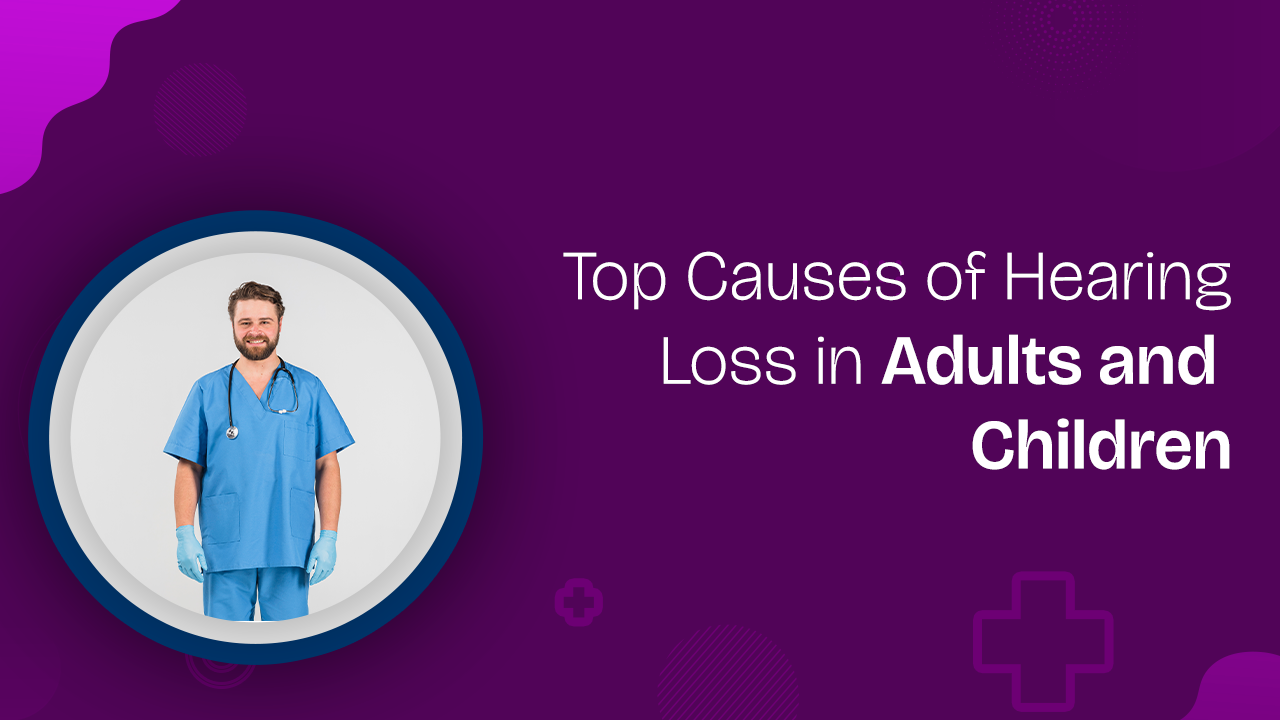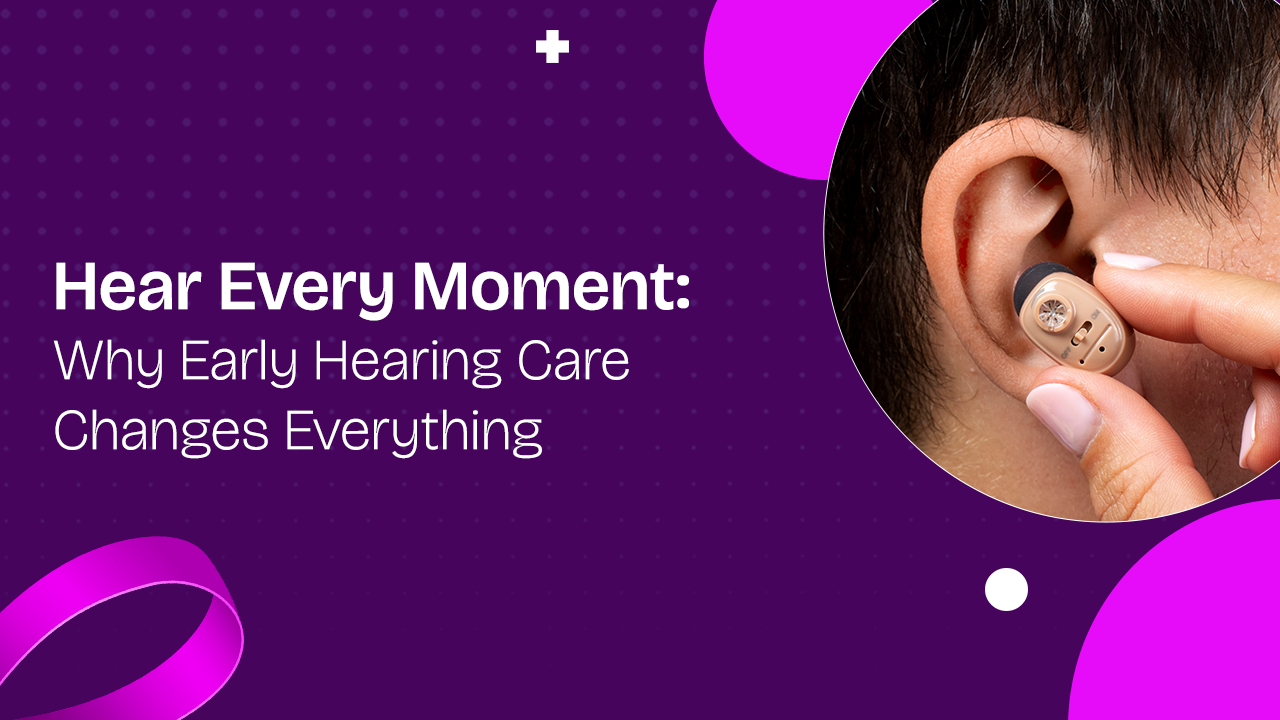Choosing the right path in hearing healthcare can be overwhelming, especially when deciding between a hearing specialist and an audiologist. Both are involved in diagnosing and treating hearing problems, but knowing the differences can help you make the right choice. Let’s get into the details of these two professions and who to see for your situation.
What is a Hearing Specialist?
Overview
Hearing specialists are healthcare professionals who help people with hearing problems. They focus on assessing, diagnosing and treating hearing loss and related conditions. They cover a wide range of auditory issues and offer patients solutions from medical treatments to hearing aid fittings.
Common Tasks and Duties
Hearing specialists do full hearing tests, evaluate the results and discuss treatment options with patients. They often work with other healthcare providers to get a whole of life approach to hearing care. They fit and adjust hearing aids, offer hearing conservation advice and support patients.
Types of Hearing Specialists
Otologists and What They Do
Otologists are medical doctors who specialise in ear related conditions, including hearing loss, ear infections and balance issues. They have extensive training to do complex surgeries like cochlear implants and ear drum repairs. Otologists are the go to professionals for complex ear conditions that need surgical intervention.
Hearing Aid Specialists: What Do They Do?
Hearing aid specialists, also known as hearing instrument specialists, are responsible for selecting, fitting and maintaining hearing aids. They do hearing tests to determine the right type of hearing aid and ensure it’s fitted to the patient’s ear. They are key to improving the quality of life for people with hearing impairments by providing customised hearing solutions.
Training and Qualifications of Hearing Specialists
Education
The education for hearing specialists varies depending on their role. Otologists go through extensive medical training, medical school, residency and often fellowship programs in otology. Hearing aid specialists need a high school diploma and then specialized training and apprenticeships in hearing aid technology.
Certification and Licensure
Certification and licensure is essential for hearing specialists to practice legally and ethically. Otologists must be licensed medical doctors with board certification in otology or otorhinolaryngology. Hearing aid specialists need to pass state specific exams and get licensed to ensure they meet professional standards and can assist patients.
What is an Audiologist?
Audiologists are healthcare professionals who specialise in the diagnosis and treatment of hearing and balance disorders. They work with patients of all ages, from newborns to the elderly, with a wide range of auditory and vestibular issues. Audiologists are involved in managing complex hearing conditions and providing rehabilitation services.
Common Tasks and Duties
Audiologists do full hearing tests, diagnose various auditory disorders and develop individual treatment plans. They fit and programme hearing aids, do auditory training and counsel patients and their families. Audiologists are also involved in preventive care, educating patients on hearing protection and conservation.
Specialties in Audiology
Pediatric Audiologists: ChildrenPediatric audiologists diagnose and treat hearing issues in children. They are experienced in working with young patients, using child friendly techniques to test hearing and ensure proper auditory development. Early intervention by pediatric audiologists can make a big difference to a child’s communication skills and overall development.
Geriatric Audiologists: Older Adults
Geriatric audiologists specialise in hearing needs of older adults. They understand the hearing challenges that come with aging and offer solutions to improve communication and quality of life. These specialists are skilled in managing age related hearing loss and supporting hearing aid use and maintenance.
Cochlear Implant Audiologists
Cochlear implant audiologists assess candidacy for cochlear implants and provide post implant care. They work with patients to ensure successful outcomes from the implant, programme and rehabilitate to get the most out of the implant. They are crucial in helping individuals with severe hearing loss regain auditory function.
Training and Qualifications of Audiologists
Education
Audiologists usually have a Doctor of Audiology (Au.D.) degree which involves extensive study of hearing science, clinical practice and research. The path to becoming an audiologist is to complete an undergraduate degree and then a 4 year Au.D. programme which combines academic study with clinical placement.
Certification and Licensure
To practice, audiologists need to get state licensure which requires passing a national exam and completing continuing education requirements. Many audiologists also get certified from professional organisations such as the American Speech-Language-Hearing Association (ASHA) to demonstrate their expertise and commitment to the field.
Key Differences Between Hearing Specialists and Audiologists
Education Pathway: A Comparison
Length and Depth of Study
The education pathway for hearing specialists and audiologists is vastly different. Otologists go through extensive medical training, years of medical school and specialized residency programs. Audiologists complete an Au.D. programme which provides in-depth knowledge and clinical skills in audiology. Hearing aid specialists have a shorter training period, high school diploma and specialized courses.
Practical Training and Internships
Practical training is a big part of both professions. Otologists go through clinical rotations and fellowships, getting hands on experience in diagnosing and treating complex ear conditions. Audiologists do clinical practicums and internships throughout their Au.D. programme, getting experience in various audiological assessments and treatments. Hearing aid specialists do apprenticeships to get practical experience in fitting and servicing hearing aids.
Scope of Practice: Who Does What?
Diagnostic Capabilities
Otologists and audiologists both do hearing assessments but their diagnostic capabilities are different. Otologists can do medical exams, order imaging tests and diagnose a wide range of ear related conditions including those that require surgery. Audiologists specialise in detailed auditory evaluations, using advanced diagnostic tools to identify hearing and balance disorders.
Treatment
Treatment approaches are different between the professions. Otologists offer medical and surgical treatment for ear conditions, medications and surgery. Audiologists focus on non medical interventions, hearing aids, auditory training and balance therapy. Hearing aid specialists mainly assist with hearing aid fittings and adjustments to get the best out of the devices.
Equipment and Technology: What Each Professional Uses
Audiometers, Tympanometers and More
Both audiologists and otologists use advanced equipment to assess hearing and balance. Audiometers are used for pure tone audiometry, tympanometers measure middle ear function, otoacoustic emission devices test inner ear responses. These tools help in precise diagnosis and monitoring of auditory conditions.
Hearing Aids and Assistive Devices
Audiologists and hearing aid specialists can fit and maintain hearing aids. They use specialized software to program the devices to the patient’s hearing profile. They may also recommend assistive listening devices such as FM systems and amplified telephones to help with communication in different environments.
When to See a Hearing Specialist
Common Reasons to See a Hearing Specialist
Sudden Hearing Loss
Sudden hearing loss is alarming and requires immediate attention from a hearing specialist, especially an otologist. Early evaluation and treatment is key to determining the cause and potentially restore hearing.
Persistent Ear Infections
Chronic ear infections especially in children require a visit to a hearing specialist. Otologists can diagnose the underlying condition and provide medical or surgical intervention to prevent further complications.
When to See an Audiologist
Common Reasons to See an Audiologist
Complex Hearing Issues
For complex hearing problems like sensorineural hearing loss or tinnitus an audiologist is the best professional to see. Their expertise in auditory assessment and rehabilitation ensures complete care.
Balance Disorders and Dizziness
Audiologists are trained to assess and manage vestibular disorders causing balance problems and dizziness. They do specialized tests and provide therapy to improve balance and reduce symptoms.
Why See the Right Professional
Improved Diagnosis and Treatment Plans
Personalized Care
Seeing the right hearing professional means personalized care to your specific needs. Otologists, audiologists and hearing aid specialists each have their own expertise so you get the best diagnosis and treatment plan.
Advanced Diagnostic Tools
They use advanced diagnostic tools to assess your hearing and balance problems. This accuracy means better treatments and outcomes.
Better Outcomes and Life
Hearing Solutions
The right hearing professional can give you hearing solutions that improves your life. From medical treatment and surgery to hearing aids and auditory training their interventions will help improve your hearing and communication.
Long term Support and Follow up
Ongoing support and follow up care is important for hearing health. Regular check ups with your hearing professional will ensure your treatment is effective and any changes in your condition is addressed immediately.
Final Thoughts on Choosing the Right Hearing Professional
Key Points
Knowing the difference between hearing specialists and audiologists will help you make an informed decision for your hearing. Both have their own expertise and knowing when to see each will give you better outcomes.
Informed Decision
Whether you need medical treatment, surgery or hearing aids, seeing the right hearing professional is key. Think of your symptoms and needs and see an otologist, audiologist or hearing aid specialist to get the best care for your hearing.








